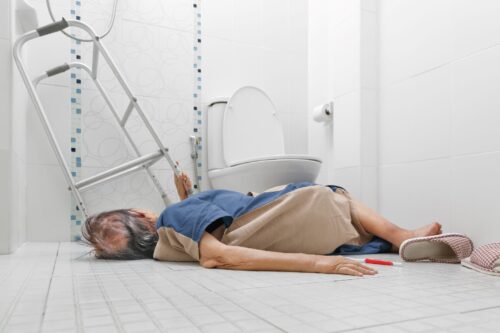Post Surgical Hip Replacement Considerations

The greatest accomplishment is not in never falling, but in rising again after you fall.
~ Vince Lombardi
Aging in Place
A friend of mine contacted me the other morning and notified me his wife had taken a fall outside while they were taking a walk. She broke her hip and just had surgery (the next day). He wanted to chat as soon as possible about this unfortunate incident and ask for some *suggestions or thoughts I may want to share (I was an acute care RN for 2.5 decades and work surgical recovery). I had at least 10 off the top of my head and want to share them here. It is vital when you read this post to understand these were thoughts shared with a friend–THIS IS NOT TO BE TAKEN AS MEDICAL ADVICE. ALWAYS SEEK THE ADVICE AND CONSULT OF YOUR DOCTOR WITH HEALTH CONDITIONS.
10 Post Surgical Hip Replacement Considerations
1). Number 1 concern postop are DVT (Deep Vein Thrombosis) `blood clots that can form in the lower limbs due to “Stasis” or lack of movement = Blood flow in the veins. Or clots that form at the surgical site.
SYMPTOMS: Sudden onset of Shortness of Breath with Chest Pain, Pain in the calf, warm to the touch, and tender.
What to do: If these symptoms occur call 911 IMMEDIATELY Prevention: Your medical team may order some kind of blood thinner to go home on after your hospital stay.
Things you can do: Stay hydrated (fluids), flex your ankles like pressing on the gas 3 sets of 10 each hour. This mimics the movement of muscles while you are in bed and helps circulation. Begin physical therapy as soon as it is ordered by MD.
2). What kind of in-home follow-up by visiting RNs if any? Dressing changes? Home assessment?
3). Nosocomial Infections or hospital-acquired infections are always a risk (even in facilities likeStanford). WASH YOUR HANDS BEFORE YOU GET NEAR ME! Go home as soon as it is safe to. You are safer at home in your own normal flora so to speak.
4). Pain Control, you will be on opiate meds to control pain. Don’t skip doses, if pain meds are ordered 1 pill with food every 4-6hrs, be diligent and keep a therapeutic level of pain control in the bloodstream. You will need to have a level of pain control (may not be completely pain-free) that allows you to sleep–that’s when much of the healing occurs. A stressed patient doesn’t heal as quickly. A stool softener is required, you’re laid up, not eating normally, dehydrated, and on opiates = perfect storm for constipation! Do not worry about becoming addicted to pain pills, right now they are therapeutic and helping the healing process.
5). Set up the home for successful recovery (your HOSPITAL social worker should be able to assist here). I have a sheet I will send on the home postop set up.
6). “Best-Worst” experience, diet, weight-bearing exercises, mindfulness (not fear) can all be adapted to empower you after recovery. “Talk with your doctor.”
7). Dressing changes are essential. It may be 10 days or so, just depending on the doctor’s orders, but wound care is crucial. Our skin is covered with all kinds of bacteria (staph is just one) that are our friends at times, and at others opportunistic and can be trouble. Clean the wound site carefully and get instructions on how to care for it. They will take staples/stitches out a week or two after SX. After the dressing is off, they will allow you to shower, but a wet dressing is prone to infection–so they will tell you to keep it dry until it comes off.
8). Ice will be your friend. Ask about how to employ ice packs on the wound site, how to use them, how to avoid tissue damage with interval usage.
9). Getting back on the horse, this is BIG. Often the fear of falling can be haunting after a hip fracture. Don’t let this become a limiting factor. BE MINDFUL, NOT FEARFUL. Continued physical activity is essential in preventing frailty syndrome.
10. Compression stockings. These are elastic stockings that fit tightly around your legs. This helps keep blood flowing toward the heart so that it’s less likely to pool in the legs and cause a blood clot.
I hope this helps, this too shall pass…
Best, Patrick
________________________________________________________________________________________
Considerations for Surgical Recovery at Home
Fall Prevention for Older Adults
*THIS IS NOT INTENDED TO BE MEDICAL ADVICE. ALWAYS SEEK YOUR DOCTOR’S ADVICE BEFORE AND AFTER ANY SURGICAL PROCEDURE.
